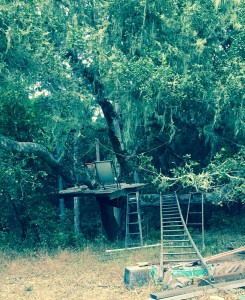
Being the apprentice for one of West Seattle’s main wizards ““ probably the main wizard, many thought ““ was not at all what Albert thought it should be. He’d been installed in the position two weeks ago and so far, all May Hua had asked him to do was walk her dogs, two elderly but still energetic Shih Tzus, three times each day. The rest of the time he studied in the workshop, but it was a self-appointed path and it made him itch, knowing that he could have moved so much faster if she’d been willing to guide him along it.
He said this ““ not for the first time ““ to Penny as they walked along. Penny was the housekeeper for Hua’s household, but like Albert, she was frequently at loose ends and so accompanied him on many of the walks. At first he’d been worried she was attracted to him, but it became clear soon that she was bored and he was a fresh novelty. “It’s been a while since May took an apprentice,” she said. She was appreciative of Albert’s presence, particularly since he praised her cooking vociferously. He’d learned a few things since his first, disastrous stint as an apprentice.
And that disastrous stint was what made him reluctant to speak up about his frustration. The closest he came was to ask May at breakfast, “What do you think I should be focusing on?”
She put down her fork and gazed at him. “Appearances,” she said briefly, and went back to her meal with no sign of desire to explain further.
“Oh,” he’d said, and returned to his own meal.
He grumbled to Penny now as they went down the slope at California Avenue’s northern end Seattle a distant postcard to their left. “Magic’s set up weird over here. There’s this screwy street system. At least back in Redmond they had genuine territories with boundaries, not this thing with a wizard for each of the main streets.”
“Not all of them,” she said. “It’s a pretty short list. California, Admiral, Alaska, the pretender of Avalon, Fauntleroy, and Mortie. And the allegiance system’s pretty much territories. Just territories with a lot of special exceptions and loopholes.” She shrugged amiably.
“Not Mortie any more,” he said.
“Therein lies the rub,” she said. “You’re complaining about a lack of action right now, but just wait. They’re still figuring out how to divvy up his sovereignty, that whole long stretch along the shore.”
“Not replace him?” Albert said, surprised.
The Shih Tzus pranced as they waited to cross Alki Avenue. “As I said, just wait.”
Enjoy this sample of Cat’s writing and want more of it on a weekly basis, along with insights into process, recipes, photos of Taco Cat, chances to ask Cat (or Taco) questions, discounts on and news of new classes, and more? Support her on Patreon..










2 Responses
RT @Catrambo: WIP: The Wizard of West Seattle: https://t.co/4Wte7d6dcp
The Wizard of West #Seattle – https://t.co/ng8Vv6H45l